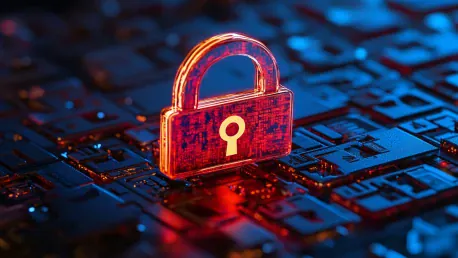The manufacturing sector is undergoing a significant transformation driven by digital solutions such as Artificial Intelligence (AI). These advancements are crucial in addressing the labor shortages projected by the Manufacturing Institute, which estimates a shortfall of as many as four million employees by 2030. However, the integration of AI and other digital technologies also brings substantial cybersecurity challenges that manufacturers must address to protect sensitive data and maintain operational resilience. The necessity to balance AI advancements with cybersecurity measures has never been more pressing, considering the escalating sophistication of cyber threats and the increasing reliance on digital processes for efficiency and innovation.
The Role of AI in Manufacturing
AI is revolutionizing manufacturing by optimizing production processes, improving quality control, and enabling predictive maintenance. Machine learning algorithms and robotics help manufacturers analyze large data sets in real-time, allowing for informed decision-making. Predictive maintenance, for instance, proactively identifies equipment failures, reducing downtime and minimizing repair costs. Additionally, AI-driven robotics automate repetitive tasks, freeing up employees for more complex roles and enhancing overall productivity and safety. This transformation is essential in addressing labor shortages and driving innovation within the sector.
Despite these benefits, the vast amounts of sensitive data generated by AI initiatives also escalate cybersecurity risks. The extensive data produced makes manufacturing a prime target for cyber-attacks, with nearly a quarter of all global cyber-attacks in 2023 aimed at manufacturing companies. Financial impacts are significant, with the average cost of a data breach reaching $4.45 million in 2023, marking a 15% increase over three years. Projections for 2025 suggest that cybercrime could globally cost an astonishing $10.5 trillion annually, underlining the imperative for robust data management and security frameworks. The dual role of AI in both enhancing productivity and introducing new vulnerabilities forces manufacturers to adopt a strategic approach to secure their operations.
Cybersecurity Challenges in the Manufacturing Sector
Manufacturers, particularly small and medium-sized businesses (SMBs), often underestimate their vulnerability to cyber threats despite evidence to the contrary. Data breaches are notably on the rise, with 71% of attacks now targeting SMBs. Conventional security measures are no longer adequate against increasingly sophisticated cyber-attacks, necessitating a proactive and comprehensive approach to data protection. Manufacturers must implement advanced security protocols, employee training, and technology upgrades to mitigate risks effectively.
In response to these cybersecurity concerns, many manufacturers are embracing digitalization, specifically through the integration of cloud-based Enterprise Resource Planning (ERP) technologies. These systems streamline operations, enhance process visibility, and foster automation. Cloud-based ERPs come with several cybersecurity tools, including centralized data management, role-based access control, data encryption, and monitoring tools. They enable SMBs to achieve cost savings, superior customer experiences, and stronger cybersecurity defenses, creating opportunities for innovation and growth in the manufacturing landscape. By investing in these advanced technologies, manufacturers can better defend against cyber threats while reaping the benefits of a digital transformation.
Advantages of Cloud-Based ERP Systems
One of the key advantages of cloud-based ERPs over legacy systems is their advanced security benefits. These platforms support continuous monitoring, real-time threat detection, automatic updates, robust encryption protocols, and strict compliance standards to protect sensitive business data. The scalability of cloud platforms also allows manufacturers to seamlessly adapt to new threats and regulatory changes without significant infrastructural overhauls. Effective implementation of comprehensive data management and security strategies is integral for manufacturers to leverage these benefits fully, providing a resilient foundation for success in a digital economy.
Beyond adopting cloud ERP technologies, manufacturers must implement additional best practices for securing data and systems. One critical measure is controlling digital access and educating employees. Data breach statistics from Fortra indicate that 95% stem from human error, emphasizing the necessity of thorough employee training to identify and prevent cyber threats such as phishing scams. Investing in next-generation endpoint protection solutions with advanced threat detection capabilities is vital, especially for SMBs lacking dedicated cybersecurity expertise. Managed services offering continuous monitoring can further enhance defense mechanisms. ERP systems can be used to limit employee access to data relevant only to their roles, reducing exposure to sensitive information and mitigating insider threats.
Implementing Robust Backup Strategies
The manufacturing sector is experiencing a transformative shift fueled by digital advancements like Artificial Intelligence (AI). These innovations are critical for tackling the labor shortages predicted by the Manufacturing Institute, which forecasts a gap of up to four million workers by 2030. Despite the benefits, the adoption of AI and other digital technologies introduces significant cybersecurity challenges. Manufacturers must now focus on safeguarding sensitive data and ensuring operational resilience. The importance of balancing AI advancements with robust cybersecurity measures is more urgent than ever, given the increasing sophistication of cyber threats and the heightened dependence on digital systems for productivity and innovation. As manufacturers continue to leverage AI to streamline operations and boost efficiency, they must also implement comprehensive cybersecurity strategies to defend against potential threats. In this era of rapid technological change, maintaining this balance is essential for the sustainable growth and security of the manufacturing industry.









